Last Updated on July 4, 2024 by Olasunkanmi Olajide
By Olasunkanmi Olajide, Tofunmi Adebayo & Temiloluwa Osinuga
In a recent comprehensive tour of the farmlands at the Federal University of Agriculture, Abeokuta (FUNAAB), the Vice-Chancellor, Prof. Babatunde Kehinde showcased the University’s innovative approaches to agriculture, aimed at cushioning the effects of food challenges in the country.
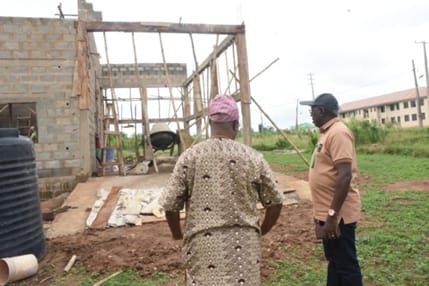
Prof. Kehinde’s inspection covered various facilities and highlighted the University’s commitment to advancing agricultural projects and revitalising the sector.
During the tour, Prof. Kehinde stated the rationale behind the increased cultivation, saying that the nation was going through a challenging period in terms of food production and that the Visitor, President Bola Ahmed Tinubu, GCFR, recently declared an emergency on food security.
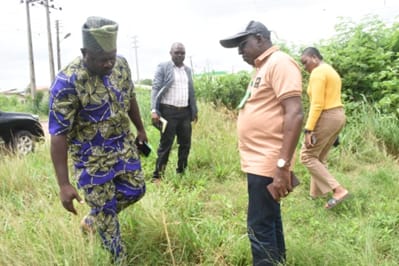
On challenges mitigating against the rapid expansion of farm territories within the vast expanse of campus land, the Vice-Chancellor stated that the University has limitations in terms of funding and some certain workforce but “We are not resting on our oars.”
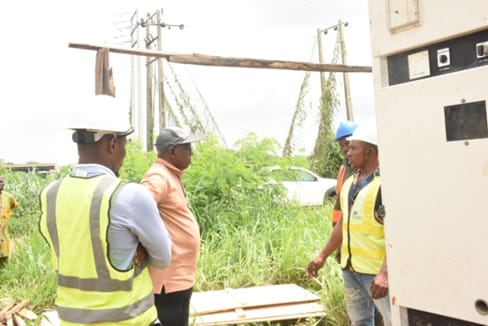
He, therefore, called for more partnerships from investors both within and outside of the country to come to FUNAAB as the University is opened for more collaboration to enhance sustainable agricultural production.
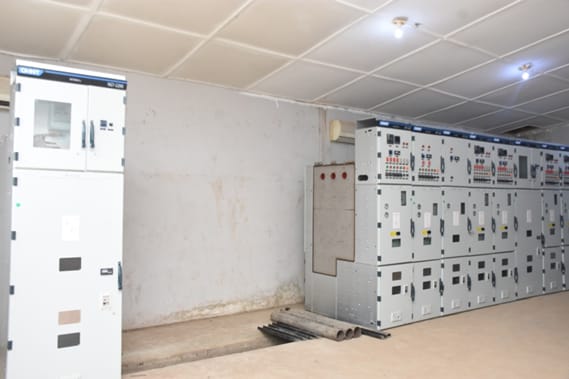
According to him, the University is blessed with abundant land resources and security with adequate expertise on agricultural production.
Prof. Kehinde commenced his tour at the Fire Station construction site, expressing satisfaction with the progress. He then visited the Central Power House, ensuring the facilities were in optimal condition and anticipating the imminent commencement of the 3MW Solar Project.
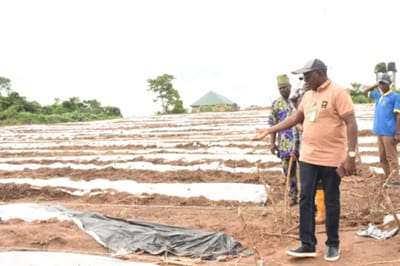
The Vice-Chancellor’s next destination was the FUNAAB/NOLAP Cattle Ranch, where he showed keen interest in the ongoing agricultural projects. He inspected the tomato plantation, a 9-hectare maize farm, and even participated in planting Brachiaria seeds (Grass) on a 4-hectare plot designated for cattle feed.
Prof. Kehinde also examined the harvested tomatoes, demonstrating his support for the University’s agricultural initiatives.
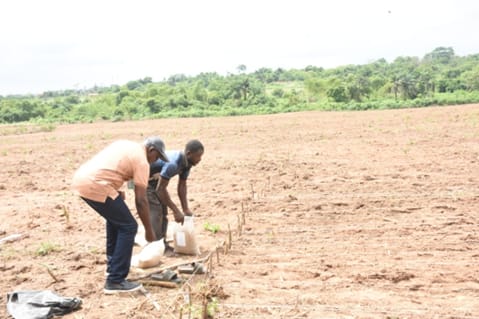
Additionally, 300 pepper seedlings have been added to the 2-hectare tomato farm established by the Farm Practical Year (FPY) students.
The tour continued at the 25-hectare Irrigated Vegetable Farm, located on the FUNAAB/OORBDA boundary, established by some FUNAAB alumni. The farm boasts a variety of crops, including tomatoes, peppers (Rodo), cucumbers, pumpkins, sweet corn, chili peppers, and potatoes.
The Vice-Chancellor noted that the irrigation systems were donated by Horti Nigeria, while appreciating them for the laudable gesture.
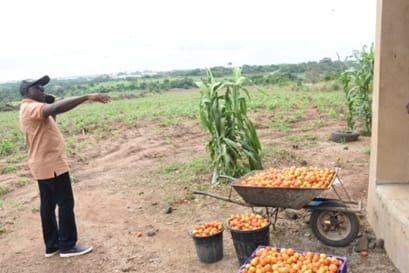
Meanwhile, on Monday, July 1, 2024, the University would harvest fresh cassava tubers from the 22-hectare Bio-Ethanol Cassava plantation with FUNAAB Integrated Venture processing them into garri, lafun, and odourless fufu, having previously sold cassava stems to farmers earlier in the month.
Prof. Kehinde also checked the ongoing planting of 2,000 Gmelina tree seedlings by Forestry Department students along the Unity Building Road leading to the Oluwafemi Balogun Ceremonial Building.
He reviewed the construction of the new football pitch and called for the proper maintenance of existing sporting facilities at the Center.
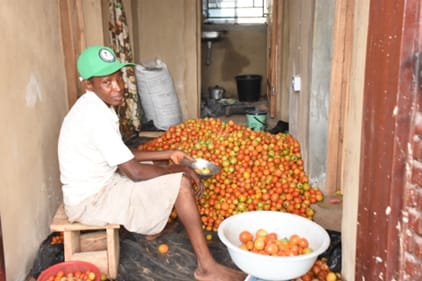
Lastly, the Vice-Chancellor visited the FUNAAB Integrated Venture (FIV) outlet and the newly-established University Bookshop to check the availability of academic materials and other resources.
Throughout his tour, Prof. Kehinde emphasised the importance of sustainable agricultural projects, showcasing FUNAAB’s significant impact in addressing food challenges.
The Vice-Chancellor’s tour underscored the University’s commitment to fostering self-sufficiency and sustainable growth.
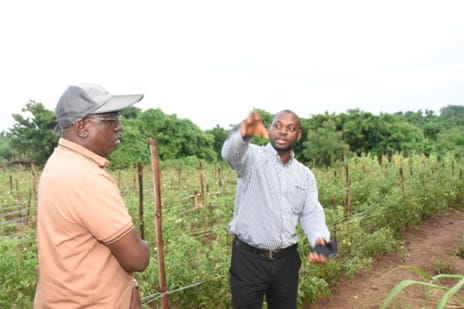
Key Points of FUNAAB’s Agricultural Initiatives:
• A 2-hectare tomato farm established by 400-Level FPY students.
• Various ongoing farm projects contributing to food security in the community, including a 15-hectare farm with tomatoes, peppers, and cucumbers, a 22-hectare cassava farm, and a 20-hectare maize farm set to mature in six weeks.
• A staff farming scheme with 75 members planting maize, cassava, yam, and vegetables on campus-allocated land.
• Partnerships with private organisations like Harvestfield, Assetrise, NOLAP, Wafroex, among others to establish commercial farms and process yields on campus.
• A cashew factory now operational, with an additional machine purchased last year and a 65-hectare cashew plantation.
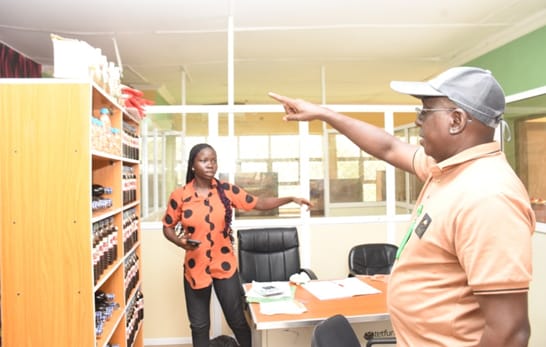
• A palm oil processing factory running for four months, processing oil palm bunches from a 70-hectare plantation, with over 3,000 liters of palm oil available for sale.
• An 11-acre pawpaw plantation established in April, 2024, with 6,000 seedlings raised in February and another 2,000 seedlings to be transplanted by the end of July.
These initiatives underscored FUNAAB’s commitment to addressing food security challenges in its immediate envrons in particular and the nation in general.
